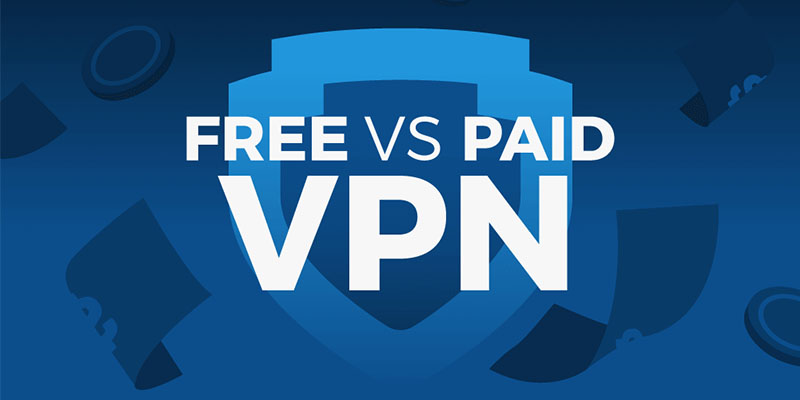In today’s digital age, the importance of online privacy and security cannot be overstated. A Virtual Private Network (VPN) is a crucial tool for safeguarding your internet activities, but not all VPN services are created equal. With a plethora of free and paid VPN options available, how do you determine which one is truly the best for your needs? This article delves into the key differences between free and paid VPNs.
5 Key Takeaways
- Free VPNs often come with limitations such as slower speeds, fewer server options, and potential security risks.
- Paid VPNs generally offer better performance, more robust security features, and a higher level of customer support.
- Free VPNs might log your data and sell it to third parties, compromising your privacy.
- Paid VPNs usually provide better access to geo-blocked content and streaming services.
- Assess your specific needs and compare features carefully before choosing between a free or paid VPN.
Understanding VPN Basics
What is a VPN?
A Virtual Private Network (VPN) is a service that allows you to connect to the internet through a server run by a VPN provider. This masks your true IP address and encrypts your data, providing enhanced privacy and security. By using a VPN, you can appear to be browsing from a different location, which helps in accessing region-restricted content.
How VPNs Work
VPNs work by creating a secure tunnel between your device and the internet. This tunnel encrypts your data, making it unreadable to anyone who might intercept it. The process involves:
- Connecting to a VPN server.
- Encrypting your internet traffic.
- Routing your traffic through the VPN server.
- Accessing the internet from the VPN server’s location.
Common Uses of VPNs
VPNs are commonly used for various purposes, including:
- Privacy Protection: Keeping your online activities hidden from ISPs and third parties.
- Accessing Geo-Blocked Content: Unblocking websites and services restricted to certain regions.
- Secure Browsing: Protecting your data on public Wi-Fi networks.
- Bypassing Censorship: Accessing restricted content in countries with internet censorship.
VPNs are essential tools for maintaining privacy and security in today’s digital age.
Security and Privacy
Encryption Standards
Encryption is the backbone of any VPN service. Reddit Best VPNs often use top-notch encryption standards like AES-256, which is considered military-grade. Free VPNs, on the other hand, may use weaker encryption protocols, making them less secure.
Data Logging Policies
A critical aspect of a VPN’s privacy is its data logging policy. Paid VPNs typically operate under strict no-logs policies, meaning they don’t track or store any of a user’s activity online, ensuring complete anonymity. Free VPNs might log user data and sell it to third parties to generate revenue.
Third-Party Access
When using a VPN, you’re essentially shifting your trust to the VPN provider. It’s crucial to read the company’s privacy policy and user agreement before signing up. If either mentions selling user data, even in anonymized form, you might want to think twice. Paid VPNs usually have stringent policies to protect user data from third-party access.
Performance and Speed
Server Availability
Server availability is a crucial factor in determining the performance of a VPN. Paid VPNs typically offer a vast network of servers across multiple countries, ensuring that users can always find a server with minimal load. This results in faster and more reliable connections. In contrast, free VPNs often have limited server options, leading to overcrowded servers and slower speeds.
Bandwidth Limitations
Bandwidth limitations are another significant difference between free and paid VPNs. Free VPNs often impose strict bandwidth caps, which can severely restrict your internet usage. This can be particularly frustrating when streaming videos or downloading large files. Paid VPNs, on the other hand, usually offer unlimited bandwidth, allowing for uninterrupted browsing and streaming.
Connection Stability
Connection stability is essential for a seamless online experience. Paid VPNs generally provide more stable connections due to their robust infrastructure and advanced protocols like WireGuard. Free VPNs, however, may suffer from frequent disconnections and slow performance, especially during peak usage times.
When it comes to performance and speed, paid VPNs clearly have the upper hand, offering better server availability, unlimited bandwidth, and more stable connections.
Cost and Value
Subscription Plans
When it comes to VPNs, the cost is a significant factor. Best free VPNs, as the name suggests, do not require any payment. However, paid VPNs offer various subscription plans that can range from monthly to yearly payments. The competition in the market has made premium VPNs’ prices quite affordable. Here is a comparison of typical subscription plans:
| Plan Type | Monthly Cost | Yearly Cost |
| Free | $0 | $0 |
| Paid | $5-$15 | $60-$180 |
Hidden Costs
While free VPNs do not charge a subscription fee, they often come with hidden costs. These can include:
- Ads and pop-ups that can be intrusive.
- Selling your data to third parties.
- Limited features that may require additional payments to unlock.
Free Trials and Money-Back Guarantees
Many good VPN reddit services offer free trials and money-back guarantees, allowing users to test the service before committing to a subscription. This can be a great way to assess whether a paid VPN meets your needs without any financial risk.
Opting for a free trial or a money-back guarantee can provide peace of mind, ensuring you get the best value for your money.
User Experience
Ease of Use
A VPN should be easy to install and use, even for those who are not tech-savvy. User-friendly interfaces and simple setup processes are crucial for a positive experience. Many paid VPNs offer one-click connections and intuitive dashboards, making them accessible to everyone.
Customer Support
Reliable customer support can make a significant difference. Paid VPN services often provide 24/7 customer support through various channels such as live chat, email, and phone. Free VPNs, on the other hand, may offer limited support, often restricted to email or forums.
| Feature | Free VPN | Paid VPN |
| Support Channels | Email, Forums | Live Chat, Email, Phone |
| Availability | Limited Hours | 24/7 |
Compatibility with Devices
A good VPN should be compatible with a wide range of devices and operating systems. Paid VPNs usually support multiple platforms, including Windows, macOS, iOS, Android, and even routers. Free VPNs might have limited compatibility, often supporting only major operating systems.
- Paid VPNs: Windows, macOS, iOS, Android, Routers
- Free VPNs: Windows, macOS, iOS, Android
When choosing a VPN, consider the devices you use most frequently and ensure the VPN service supports them.
Streaming and Geo-Restrictions
Accessing Geo-Blocked Content
Streaming services have to comply with licensing rules and copyright laws in each country they operate in. This means that, even though they have the rights to show a particular movie, sporting event, or TV show in one region, they don’t necessarily have the rights to show it everywhere. Most streaming services use sophisticated technology to detect and block VPN traffic. Therefore, you need to use a VPN with a large range of strong and secure servers that can successfully disguise your IP address to make it appear as though you’re inside that location.
Streaming Quality
Paid VPN services tend to work well when it comes to accessing geo-blocked content. For example, if you’re streaming video from another country and need to bypass geo-restrictions, you can totally do that with a paid VPN service like ClearVPN. They offer a wide range of servers located all over the world, so you can connect to any content you need without any restrictions.
However, getting that with a free unlimited VPN is wishful thinking. Their limited infrastructure and the small number of VPN servers mean that free VPNs have almost zero chances of providing you access to geo-blocked content.
Popular Streaming Services Supported
Even some paid VPN providers fail to unblock major streaming services such as Netflix, Disney+, Amazon Prime Video, or HBO Now. So, if your main reason for getting a VPN is to unblock region-restricted streaming services from other parts of the world, you’ll need to choose your provider very carefully. Most streaming services can identify and block most VPN traffic. So you’ll need a tried-and-tested solution that can successfully bypass the geo-blocks on the content you want to watch.
Risks and Limitations of Free VPNs
Security Risks
One of the most concerning traits of a free VPN is that it can contain malware that causes damage to your privacy and perhaps even to your devices. By using a free solution, you’re at a higher risk of being exposed to ransomware and malware that could steal sensitive information, such as security details and bank logins. It can also compromise your security by leaving you vulnerable to DNS attacks.
Limited Features
Free VPNs offer very limited features in comparison to paid-for options. This will restrict what you can use the VPN for. An example of this is the small number of poor-quality servers that aren’t strong enough to unblock region restrictions on streaming services, such as Netflix, BBC iPlayer, or Hulu. On top of this, they often impose data caps, so you can only use them lightly before running out of bandwidth.
Ads and Pop-Ups
Free VPNs often rely on ads and pop-ups to generate revenue. This can lead to a frustrating user experience, as you may be bombarded with advertisements while trying to use the service. These ads can also pose a security risk, as they might contain malicious content or lead to phishing sites.
While using a free VPN might be appropriate for occasional light use, there are significant risks involved that could compromise your security and privacy.
Making the Right Choice
Assessing Your Needs
When choosing between a free VPN and a paid VPN, it’s crucial to assess your specific needs. Consider what you will be using the VPN for, such as streaming, browsing, or securing sensitive data. Different use cases may require different features and levels of security.
Comparing Features
Here’s a comparison of key features between paid and free VPNs:
| Feature | Free VPN | Paid VPN |
| Servers | 1-50+ | 1,000-6,000+ |
| Server countries | 1-20 | 50-100 |
| Data limits | 500MB-10GB | Unlimited |
| Advanced encryption | ❌ | ✅ |
| Kill switch | ❌ | ✅ |
| Leak protection | ❌ | ✅ |
| Obfuscated servers | ❌ | ✅ |
| Double VPN | ❌ | ✅ |
| Onion over VPN | ❌ | ✅ |
| Customer support | ❌ | ✅ |
Final Recommendations
- Identify your primary use case: Whether it’s for streaming, security, or general browsing.
- Evaluate the importance of features: Advanced encryption, server availability, and customer support.
- Consider your budget: Weigh the cost against the value and features provided.
Ultimately, the best VPN for you will depend on your specific needs and how much you’re willing to invest in your online privacy and security.
Conclusion
In the debate of free VPN vs. paid VPN, the choice ultimately depends on your specific needs and priorities. Free VPNs can be tempting due to their cost-free nature, but they often come with significant limitations and potential security risks. Paid VPNs, on the other hand, offer more robust features, better security, and reliable performance, making them a worthwhile investment for those who prioritize their online privacy and seamless internet experience. By understanding the key differences and evaluating your own requirements, you can make an informed decision that best suits your digital lifestyle.
Frequently Asked Questions
What is the main difference between free and paid VPNs?
The main difference lies in the level of service, security, and features. Paid VPNs generally offer more robust security, faster speeds, and better reliability compared to free VPNs.
Are free VPNs safe to use?
While some free VPNs can be safe, many come with risks such as data logging, selling your data to third parties, and limited security features. It’s essential to research and choose a reputable free VPN if you decide to use one.
Can free VPNs unblock geo-restricted content?
Free VPNs often struggle to bypass geo-restrictions on content. Paid VPNs are usually more effective at unblocking geo-restricted content on popular streaming services.
Do free VPNs have bandwidth limitations?
Yes, many free VPNs impose bandwidth limitations, which can affect your browsing and streaming experience. Paid VPNs typically offer unlimited bandwidth.
Is customer support available for free VPN users?
Customer support for free VPN users is often limited or non-existent. Paid VPN services usually offer better customer support, including 24/7 assistance.
Are there any hidden costs associated with free VPNs?
While free VPNs do not charge a subscription fee, they may come with hidden costs such as ads, limited features, and potential privacy risks.










